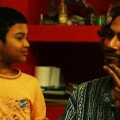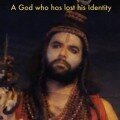Review: BOM
The director starts off the movie with a message that he had gone to Malana with the intention of searching for an ancient democracy and the world’s best hashish (cannabis). However, what he does find is an experience worth recounting; here’s a story which has gone untold and that is what BOM is all about.
Malana is a small Indian village set in Himachal Pradesh, nestled amidst the Himalayas. The village is amongst the oldest in India and has its own set of laws, regulations, committees and councils abiding to which it functions – or rather, did function till a few decades back. As mentioned earlier, the village is also known for the superior quality cannabis which grows wildly in this part of the country. During Amlan’s stay in Malana, he finds a foster family of sorts and with the help of these newly found family members and the people of Malana, he manages to capture all that has gone wrong with this village over the years.
In its opening few shots, the film captures two mountain peaks – Mount Virtue and Mount Vice. According to local folklore, there has been only one person who attempted to go in between these two peaks, and this person was turned into stone. The stone is visible to this date. It is also said that Mount Virtue was at one point of time much higher than Mount Vice. Today, however, Mount Vice stands taller than Mount Virtue. The locals believe that the day Mount Virtue stops existing, is the day the entire world will come to an end. It is these few shots, coupled with the folklore, which provide an important symbolic background to the entire film.
Since time immemorial, the people of Malana have been functioning under a republican government. They have an Upper House and a Lower House, similar to the one in the Indian Parliament. There is an essential point of difference though. The people who made it to these Houses were selected, and not elected, as is the general norm. They worshipped their own God, lived a primitive life, had a Court of God where all disputes were resolved amicably and led a happy and peaceful existence. Their main source of income was the cannabis plant. They used the plant not just for intoxication, but to make ropes, slippers, and several other commodities. In the 70s, a bunch of foreigner hippies stepped into Malana and started cultivating and smuggling hashish. Under the Rajiv Gandhi government, The Narcotic Drugs and Psychotropic Substances (NDPS) Act came into being, which clubbed cannabis in the same league of drugs as the more harmful cocaine and opium. The administration then took it upon themselves to stop the production and use of marijuana in Malana.
Following this, in the first few years of the 21st century, the government decided to introduce the voting system in Malana and get the locals involved in the politics of the nation. They also made an effort to improve the infrastructure in the village by building dams, water projects etc. However, this turned out to be a disaster in disguise. The introduction of the voting system meant the inevitable introduction of political parties in Malana. The people were gradually divided, after centuries of unity. The sudden interest of the Delhi administration in the internal affairs of Malana to strictly regulate and ban cannabis meant that the villagers were deprived of their only means of livelihood.
With the bureaucracy and nepotism prevalent in the government, only the rich and powerful gained from the government activities while the poor suffered on every front possible. Malana had never witnessed any disaster till a few years back. In 2008, due to a short circuit caused at a party held by a politician, the entire village was burnt down. Since the cutting of trees had been made illegal, the villagers were forced to rebuild their houses entirely with concrete and bricks. The government gave a meagre amount as compensation, but the amount was barely half the expenditure that they incurred while rebuilding their houses.
Even today, the people of Malana question the right of the Indian government to barge in and claim their land, tradition and livelihood which had sustained for centuries. Some even feel that they would have been better off had Malana been left as an independent state, separate from India. Meanwhile, the BJP and the Congress keep making hollow promises which mean very little to these people.
Amlan interviews officers from the narcotics department, Election Commission, former chief ministers and local leaders to portray the downfall that this little village has had. In an interview with a politician over the phone, the politician openly says that he does not care about the people or what happens to them, as long as the rules and laws are adhered to.
All of this makes Amlan pose an important question in front of us and makes us ponder over the answer. Is this truly a democracy that we are living in? Where the poor are suppressed and their needs are shoved away as trivialities. Where people do not have the right to make choices and are deprived of their inherent rights. Where capitalism prevails, shrouded by claims of socialism. Where an ancient civilization is destroyed by the so-called development. Where the people are given a voter’s card and made to participate in the election system even though they are completely unaware of it. Is this what democracy truly is?
BOM, which according to Hindu mythology signifies the fifth element which makes the earth, and in this context, the eternal hope of the people of Malana and the void which is present in their life, stands out not because it is shot beautifully (though I have to admit some of the shots were absolutely brilliant and candid) or any other reason for which a film normally stands out. It stands out because it’s an honest experience which moves you and leads you to question the foundations and ethics on which our beloved nation is run. It makes you realize that after more than six decades of independence, India is probably amongst the most regressive nations in the world.
The wonderful factor about this documentary is that it doesn’t preach a thing. It doesn’t tell you that the government is bad or that cannabis should be legalized. Neither does it does not advocate the rights of the downtrodden. It shares an experience and leaves it to your prudence to make a choice on the subject matters which have been dealt with.
Watch Amlan Datta’s BOM if you manage to come across the movie. It is amongst the finest Indian documentaries that I have come across!
___________________________________________________________________
For details regarding the film, go here.
To contribute money for the theatrical release of this film, go here.
The photograph of Amlan Datta belongs to The Other Way.





















Pingback: A Year in Movies | dfuse.in